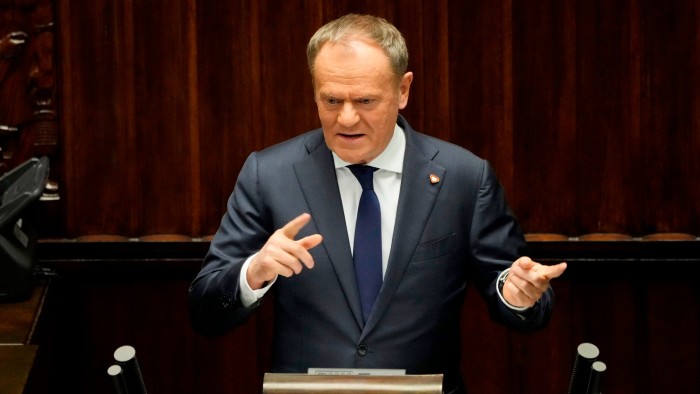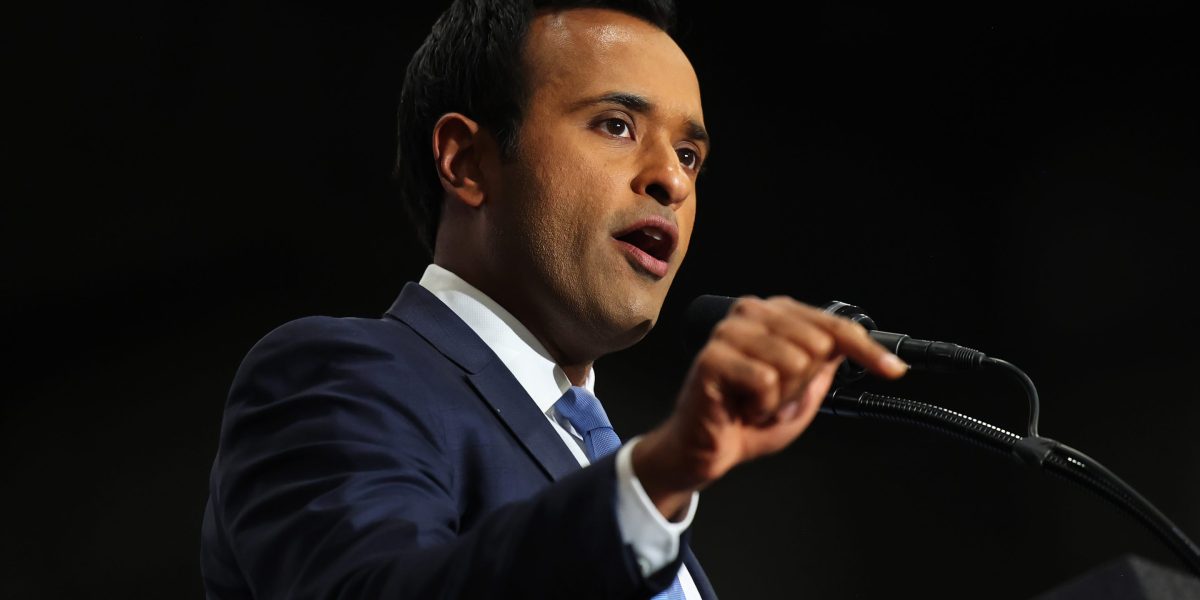
- Wedbush Securities analyst Dan Ives lowered his price target to $315 per share, citing a steep revision in his delivery estimates through 2030 due to Elon Musk’s politics. Ives had hiked it in late January to $550 just before the stock suffered a market rout. “The demand destruction for Tesla and brand damage is real,” he wrote.
Roughly a month ago, Wedbush Securities analyst Dan Ives warned Tesla CEO Elon Musk that patience among his shareholders was “wearing very thin”.
It now looks as if it finally snapped, after Wall Street’s most reliable Tesla bull slashed his price target nearly in half, blaming the polarizing CEO for poisoning the well. Moving forward, he said, EV sales for the brand that once hit breakneck speeds would now only crawl ahead with percentage gains in the single digits as a result.
“The demand destruction for Tesla and brand damage is real,” Ives wrote, “and has morphed into something much more concerning over the past few months.”
By cutting his price target to just $315 from $550, the Wedbush analyst broke ranks from many Tesla bulls who largely view Musk’s politics as a wash—as in, Musk is losing no more customers on the left than he is gaining from the right.
Ives not only disagreed with that, he said the tariffs risked spreading the problems from Europe and the U.S. farther East, explaining he was much more worried about Musk’s association with Trump in terms of China.
Whereas his recent price target changes appeared to be driven by sentiment and conviction, Ives this time erased entire assumptions underpinning the fundamental earnings drivers.
He justified the new $315 target with a steep downward revision of his estimates for Tesla vehicle deliveries for 2025 all the way through to 2030, reducing them by an average of more than a fifth.
Sharp downward revision of delivery estimates through 2030
Ives now predicts EV sales for the brand should increase at an annual pace of roughly 8% from next year onward—down from a previous rate of approximately 15%.
“We now estimate Tesla has lost/destroyed at least 10% of its future customer base globally based on self created brand issues and this could be a conservative estimate,” Ives wrote. “In Europe, this number could be 20% or higher…all self-inflicted by Musk.”
What that means in practice is deliveries of just 1.70 million vehicles this year, a 5% annual drop over 2024, rising to 2.47 million at the end of the decade. For comparison, his estimates were at 2.19 million and 4.54 million, respectively, only five months ago.
Previously Ives had calmed investors by arguing Musk’s influence with Trump would likely grant him a hefty say in the China tariffs the president was planning.
These hopes were dashed last week following news that import duties on China would skyrocket to 54% from a previous 20%, starting April 9.
China in return slapped a reciprocal tariff of 34% to match the administration’s move, setting up a trade war between the world’s two superpowers.
Now Ives fears that Chinese buyers, who previously cared little if Musk was pushing authoritarianism in the West, could turn their backs on the Tesla CEO because of his close relationship with the U.S. president.
“The backlash from Trump tariff policies in China and Musk’s association will be hard to understate and this will further drive Chinese consumers to buy domestic, such as BYD, Nio, Xpeng and others,” Ives wrote.
Ives had hiked his price target three times since Trump’s election
The Wedbush analyst had picked the worst possible time to become bullish. In mid-December, he hiked his price target to $515, just three days before the stock peaked at its record price of $488 a share.
Ives then doubled down on his optimism, hiking once more to $550 two days after Trump took office. By that point the stock’s steady declines over the previous four weeks were about to turn into a rout, as Musk’s DOGE efforts sparked outrage across the country.
Finally, after Tesla shares fell another 37% to hit $263, Ives felt investors needed a “table pounder” like Wedbush to remind them of the value they were missing out on and added the stock to its “Best Ideas List”. In total Ives had hiked his price target three times since the election from just $300 in early November.
Instead the mixture of Tesla’s Q1 car sales—the lowest in nearly three years—and the uncertainty around tariffs has continued to pressure the stock. Tesla shares are expected to open some 5% lower when trading begins Monday.
“Tesla has unfortunately become a political symbol because of Musk and this is a very bad thing for the future of this technology stalwart,” he said.
This story was originally featured on Fortune.com




